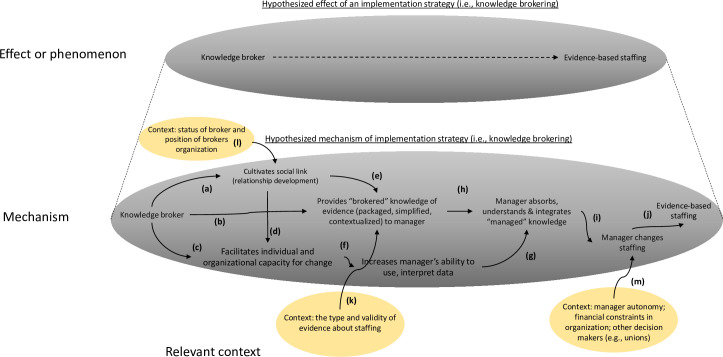Fig 1. The mechanism of the effect of an implementation strategy can be conceived of as being composed of a chain of events (in the larger ellipse below) underlying a larger phenomenon (smaller ellipse above) [18].
In this case, we synthesize and simplify existing literature to suggest that knowledge brokering potentially occurs through (a) developing a relationship with the knowledge recipient; (b) offering evidence to the recipient; and (c) building capabilities to use that evidence in the recipient. These activities, in turn, are hypothesized to increase the capability, motivation, and opportunity of the manager to apply evidence-based intervention, which may then lead to changes in behavior (step i). Contextual effects are represented as ellipses pointing into specific nodes in the chain of event (steps k, l, and m). We use a convention from some causal diagrams in which 2 arrows pointing into 1 node (i.e., word) implies effect modification. Image credit: Raymond Craver.

